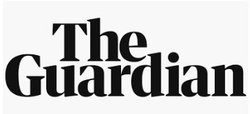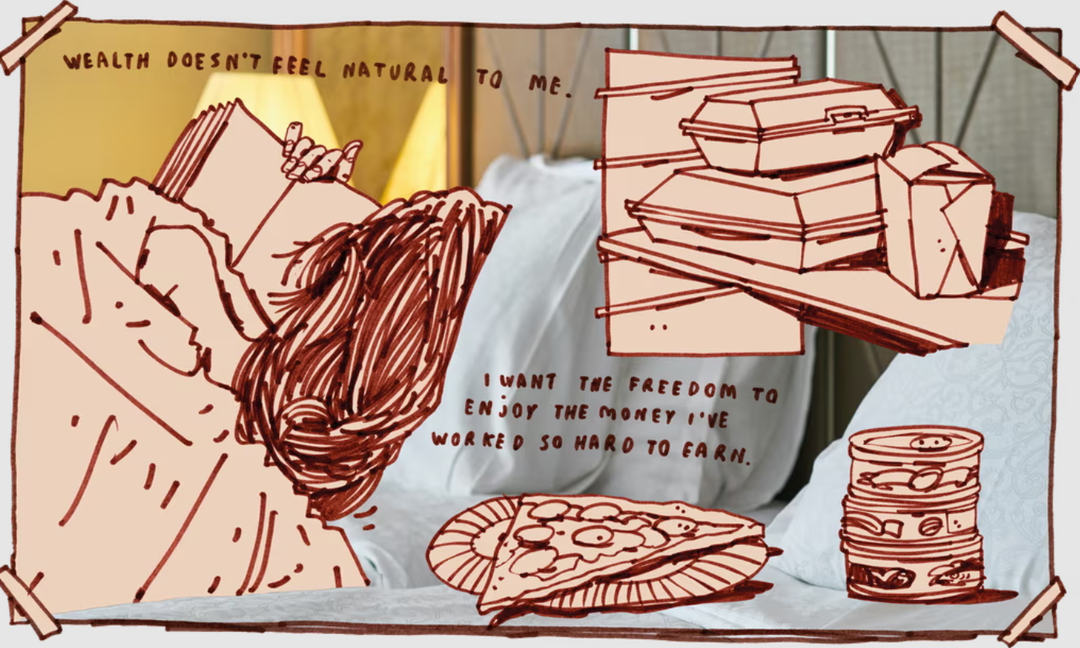
By Lola Mendez
July 18, 2024
Lola Mendez is a freelance journalist
Recently, for the first time in my life, I paid to upgrade myself to business class on a flight. It felt exhilarating to spend money frivolously and treat myself to a more comfortable flight. It was decadent, and worth every penny.
The upgrade was $180 (£139) and I could have afforded it even if it had been $1,000, but I struggle to justify that kind of expense. As a freelance journalist I usually make between $30,000 and $55,000 a year, and I’ve managed to save over six figures. Still, I’ve struggled with a lifelong sense of financial insecurity. I know the way I perceive my situation isn’t aligned with reality, that it’s something people call wage dysmorphia. The good thing about living this way is that I’ve been able to save. But I remain trapped in a mindset driven by fear of scarcity.

Illustration: Joost Stokhof/The Guardian.
This summer I hope to heal my relationship with money – but first, let me tell you about some of the things in my life that led to me getting here.
In 2009, I was 19 years old and transferred to a school in New York City, a notoriously expensive place to live even then. My first apartment was 8ft (2.4 metres) by 8ft and $1,300 a month. After my school and rent expenses, I was left with $2 a day for food. I lived on canned tuna and dollar slices of pizza, attending events where there would be free food for dinner. It was normal for those of us in the fashion industry to attend events nightly, and I would befriend the Latinx waiters and ask them for extra food. I was never embarrassed – I was doing what I had to to survive.
Today, this means that, despite having the funds to do so, I just can’t bring myself to spend on things I find unnecessary. I’m hyper-aware of my spending in a way that it is not beneficial to my wellbeing. I will guilt-trip myself for spending $2.75 on fresh mango juice at a restaurant when I know I can get it from a street vendor for a fraction of the price. I know what you’re thinking: will an extra two bucks on juice make much of a difference? Truthfully, I’m not sure it does – it just causes me unnecessary stress. But on bad days, I can struggle to move past such small spending.
I know many people my age don’t have any savings. I don’t feel sorry for myself. But wealth doesn’t feel natural to me. Growing up as a minority in the midwestern United States with an immigrant parent made me very aware of the fact that a constant flow of money isn’t a guarantee.
Here are some of the commitments I’ve made to myself this summer. Long gone are the days when I would spend $30 on a budget hotel in a country I didn’t know, only to end up alone in a hotel room with a door that couldn’t be locked. I’m allowing myself to spend more than $200 on unnecessary things simply because they bring me joy or make my life easier. I will no longer spend hours trawling through the sale section at stores.
Being able to live in the moment, rather than constantly worrying about the future,has already done wonders for my mental health. The advice I’d give to people who have struggled, like me, to spend money they actually have, instead of what they’re scared of not having, is that a financial scarcity mindset is hindering their ability to thrive. Buying yourself a mango juice isn’t going to drive you to financial ruin. Be kinder to yourself.
This summer, I want to abandon my wage dysmorphia in favour of the freedom to spend the money I’ve worked so hard to earn. Releasing myself from frugality will help me get back all that time spent dreading my spending, and give me back more time to enjoy my life.


